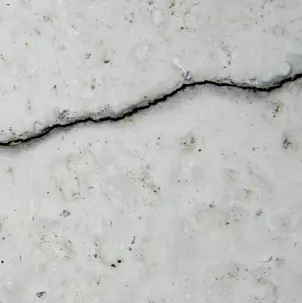61
Water Your Yard – Prevent Pool Damage
 If you have been watching local news stations over the past week or two, you have likely seen stories about foundation problems occurring on area houses. Two remarks that I remember from the reports are:
If you have been watching local news stations over the past week or two, you have likely seen stories about foundation problems occurring on area houses. Two remarks that I remember from the reports are:
- From the owner of a foundation repair company—“We are receiving at least twice as many calls as we typically receive this time of year.”
- From a homeowner—“My wife and I built this house 41 years ago and this is the first time that we have had foundation problems.”
These problems are occurring due to the weather that we have experienced. We had a wet start to the year, followed by the driest 5 months in 109 years. According to WFAA’s chief meteorologist, Pete Delkus, from March 1st thru July 31st, we received 7.05” of rain. The last time that it was this dry was in 1909, when we received 6.15” of rain during a 5 month period. It doesn’t look to get any better soon, as we enter August—which is typically our hottest and driest month of the year.
This dry weather means that the soil is extremely dry right now as well, which is causing problems for those who have expansive soil. The north Texas area tends to have pockets of fairly expansive soil—soil that contracts when is gets dry and expands when it gets wet. Therefore, this extremely dry, hot period that we are now experiencing is drying out the soil—causing it to contract. When it finally does rain, expansion of the soil will take place. Whatever is in contact with the soil during this time of contraction and expansion also experiences movement. This movement can not only damage house foundations, but also pools, pool decks, driveways, sidewalks, patios, etc.
Although pool builders working in this area use cushion sand and steel rebar in the construction of their pool decks, these pool decks still require your attention to help prevent raising, settling, and cracking. In addition, this movement can also damage the expansion joint (either called the mastic joint or the deck-o-seal joint) between the deck and the pool, which needs to be checked periodically.
Pool decks are not warranted against this raising, settling, and cracking. Depending on the moisture content of the soil, this raising or settling can be up to an inch or two. Although it is next to impossible to completely avoid some movement in your pool deck, consistent soil moisture content is the key. Avoiding extremely wet or extremely dry soil conditions can help prevent movement. Following are some tips to help you avoid problems:
How to avoid having soil that is too dry
- During extremely dry times, be sure to water your yard enough to avoid the separation between the soil and the pool deck. This separation can cause movement.
How to avoid having soil that is too wet
- Do not allow drainage to fall towards the pool deck.
- Pay close attention to sprinkler heads that are up against the pool deck; they can erode the cushion saidn under the deck, causing the deck to move.
Remember that consistency is the key – try to avoid soil that is too dry or too wet. We hope that you are having a wonderful summer and that your pool is getting plenty of use.




